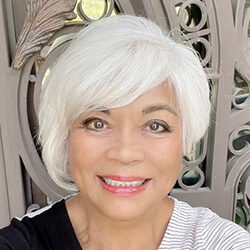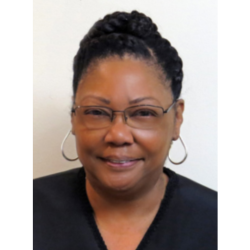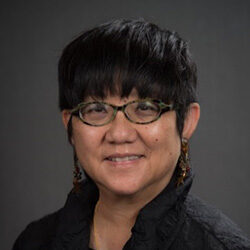California Lawyers Association
The Law Ladies: Three Influential Legal Trailblazers You Need to Know
They are affectionately known as, “the Law Ladies,” but make no mistake. They are powerbrokers, advocates, and thinkers who have shared their mission over decades to increase diversity, equity, and inclusion in the judicial system and provide an educational pathway for students interested in the law. Their goal: to ensure that California’s legal profession reflects the rich diversity of the state’s population and provides equal access to justice.



The women are also among the “firsts.” Attorney Ruthe Ashley was elected to the American Bar Association’s (ABA) Board of Governors in 2014 and was the first Filipina and only the second Asian Pacific American women on the ABA’s board. Judge Judy Johnson was the first woman and attorney of color to be chosen as the State Bar of California’s chief ethics prosecutor and the only person to be nominated and confirmed twice by the State Senate of California. Attorney Patricia Lee served as the founding Director of Santa Clara County’s Office of Women’s Advocacy addressing critical issues and emerging trends affecting women, girls, and families. She was instrumental in creating the Legal Aid Association of California (LACC) and the Executives of California Legal Associations (ECLA).
Their resumes tell stories of opportunities, challenges, and results. Their inventory of professional roles, successes, and accolades could fill a law library. However, what matters most to Ashley, Johnson, and Lee is their work to establish, maintain, and grow an educational pipeline for students, particularly those who have traditionally been underrepresented. The program they developed helps students learn about government and civics engagement while at the same time providing a path from high school, through undergraduate and law school, to becoming attorneys and legal professionals.
“I think that’s why I’m here. God placed me here,” says Ashley who is responsible for the concept of the high school law academies and securing the original grant funding for the program through the State Legislature. When asked what motivated her to initiate the academies, she replies, “Diversity was very important to me, and California’s legal profession needed it. But what really continues to resonate with me is working with kids in high school, the first steps along the pathway. That’s where I want to leave my legacy. To leave a pipeline of diverse lawyers.”
What began in 2010 as a hopeful proposition conceived by Ashley, strategically planned by Lee, and ultimately approved by Johnson to create six high school law academies, in partnership with the California Department of Education, has grown to 25 thriving law academies through the California Legal Pathways Collaborative (CLPC). Founded by Ashley, CLPC is widely recognized for their work in public schools across the state. Ashley has recently stepped down as CLPC’s chair, with Lee now assuming the responsibility. CLPC is the educational component of California Lawyers Foundation (CLF), the charitable arm of California Lawyers Association (CLA), the largest volunteer bar association in the state with over 50,000 members.
The three-year program begins in a student’s sophomore year, enrolling more than 3,000 students annually. The participants engage in a host of unique educational opportunities through to graduation. Judges and lawyers provide mentorship alongside each school’s staffed educators. The curriculum offers detailed learning about all three branches of government, introducing students to fundamental legal concepts through a legal-focused curriculum integrated into traditional core classes. Special activities include attendance at Legislative Day in Sacramento, online forums, and other individualized projects. Students have entry to internships and jobs as they work toward completing their undergraduate degrees, with most being the first in their families to go to college.
Judge Johnson was serving as Executive Director for the State Bar of California at the time Ashely proposed the first academies over 15 years ago. She is ultimately responsible for the program’s approval. “The concept fit into the State Bar’s mission at the time to focus on diversity,” explains Johnson. She recalls how all three “law ladies” were among the first women lawyers and the first lawyers of color. “There was and still is a great void of diversity in the legal profession, and we need the next generation of people to reflect our population.”
In fact, all three women discuss the importance of surveys taken by California’s Judicial Council which found that when people feel the judicial system is a reflection of their diverse backgrounds, trust is gained. This includes having people of color and women in courtrooms, not only as lawyers and judges, but also as court personnel and jurors. Fundamentally, people will accept a ruling, even if it is not necessarily in their favor, when they feel it is fair, according to the same surveys.
“CLPC’s law academies have their roots in the Constitution,” says Johnson. “The three of us all grew up during the civil rights movement in a time that being a woman of color in the legal profession was pretty lonely. We didn’t want others to feel that way, so we did something about it.”
Both Ashley and Johnson credit Lee with taking the academies from concept to completion. Lee created the program infrastructure which had to meet strict Department of Education partnership requirements. This included a condition that participating schools be comprised of students primarily from “at risk” communities.
“I had the best possible situation working together with Ruthe and Judy,” Lee reflects. At the time the academy program was introduced, Lee was the Director of the State Bar’s Office of Legal Services, Access & Fairness programs which focused on equal access to justice for low and moderate-income persons. She went on to become the Special Assistant for Diversity and Bar Relations. “DEI in the profession really wasn’t emphasized up until that time. The three of us wanted to make an impact on the practice of law and to be able to follow the rule of law in the best possible way. Ruthe had the vision and Judy said, ‘Yes!’”
Lee, who admits that she didn’t start out to be a lawyer but instead wanted to be an advocate for the juvenile judicial system as a probation officer, says that, “Civics education is critically important in high school. Ultimately, I became a lawyer because I looked around and knew I had to help the broader community.”
As CLPC’s new chair, Lee wants the organization to reach even deeper. “We want to expand to as many high schools as possible. We want high school students to be aware of democracy, the rule of law, and to become well informed citizens.” It is important to CLF and CLPC that the academies be located in both large metropolitan areas such as San Diego and Los Angeles, as well as smaller, outlying cities. Scholarship is also a key component. CLF awarded $50,000 in scholarships to high school, undergraduate, and law school students in September 2025, and its overseeing association, CLA, raised more than $10,000 from generous contributors at its recent annual meeting, with 100% of the donations going directly to student scholarships.
Johnson believes that all people have a civic responsibility. Nearing her 50th year as an attorney, she says largely because of the civil rights and women’s movements, she grew up at a time when she had opportunities denied older generations of minorities and women. “I think the three of us have a million stories about what we faced. That’s why we are all so passionate about this work. We want to make certain young people are provided with resources to aid their success.”
The three attorneys remain actively involved with all of the academies, including the DeAnza High School law program in Richmond, one of the six academies first established, and where their “law ladies” title originated. The women recall that a school district administrator began referring to them as the law ladies, because of their powerful and meaningful presence. “They don’t see us as individuals: Ruthe, Judy, or Pat,” laughs Johnson. “They see us as a triad, three women working seamlessly together as a team.” They joke that when a school official receives an email from one of “the ladies,” they know messages from the other two will soon follow.
Lee shares that, “We survived the whole process of establishing the academies with Ruthe as the champion, and now the doors are wide open. We are determined to make this the best program out there. I think that’s why we are all so close.”
“We are like sisters,” says Johnson. “We have a deep affection for each other. We have no ego invested with regard to each other. More importantly, we have a keen sense of partnership and a keen appreciation of each of our commitments to our mission.”
Ashley, who has established each of the academies across northern, central and southern California, has never been paid for her role at CLPC and says she doesn’t consider it work. She describes Lee as, “the wind beneath all of our wings,” and says that, “Without Judy’s support, the academies would never have happened.”
“We love each other,” Ruthe says. “We absolutely do, and we work so well together. We respect the talent we each bring to the process, and that’s something we have been able to do for twenty-five years.”
All three women encourage everyone in the legal profession to get involved in the law academies, whether it be serving as a speaker, attending an event, organizing an activity, contributing financially, or taking on the responsibility to serve on an academy advisory board.
“We need to continue to promote engagement in the academies,” says Johnson. Lee echoes her colleague, “We want to make sure kids have a chance to know what it’s all about out there. We are quite literally changing the face of the profession.”
“This has been my job on this earth,” Ashley declares, thoughtfully adding, “We law ladies may disagree with each other, but we never let up. We have had years of proving that what we do is working, and we know we need each other, because we are so invested in this program and these kids.”
Ashley, who was recently honored by CLA with its 2025 Community Volunteer Award, says that even if the students participating in the academies don’t become attorneys, they are learning critical thinking skills and about their rights, and that makes them better people.
The Law Ladies invite you to join them to learn more about how you can be involved in the law academies. “Whether you want to mentor a student or bring an academy to your school, we want to engage,” says Ashley. Learn more about their successes, CLF’s scholarship programs, and teaching students about the rule of law.
